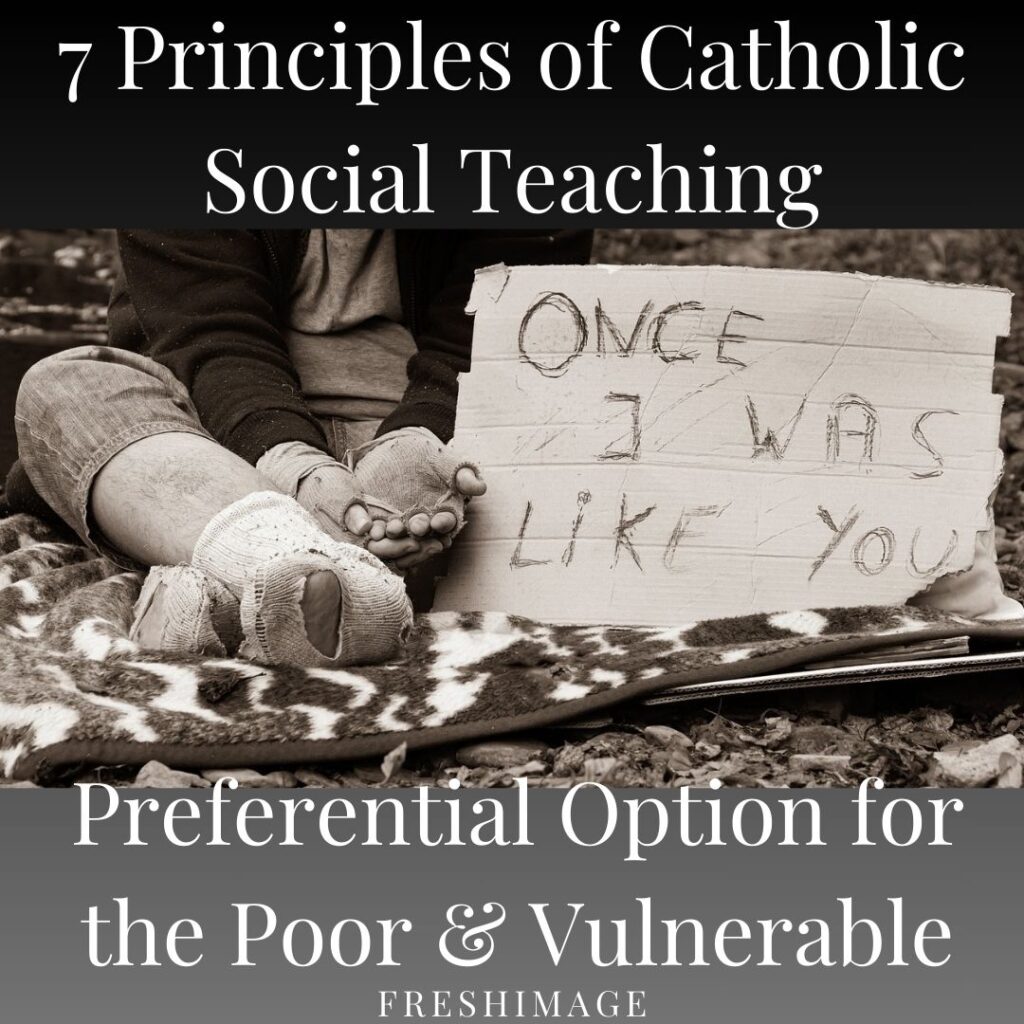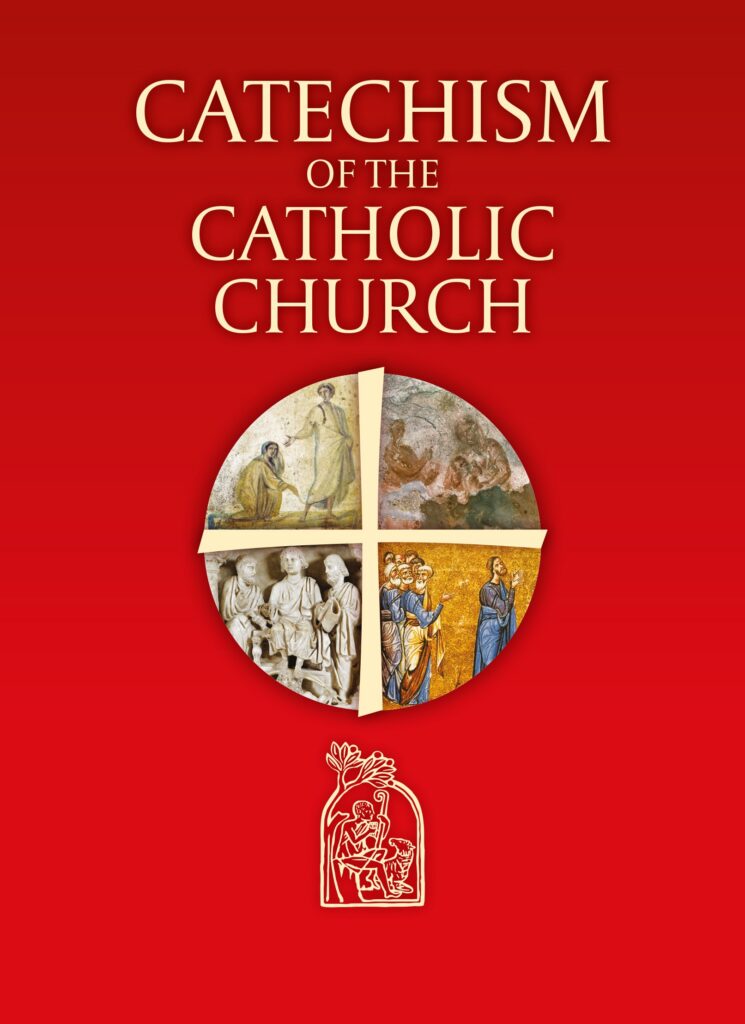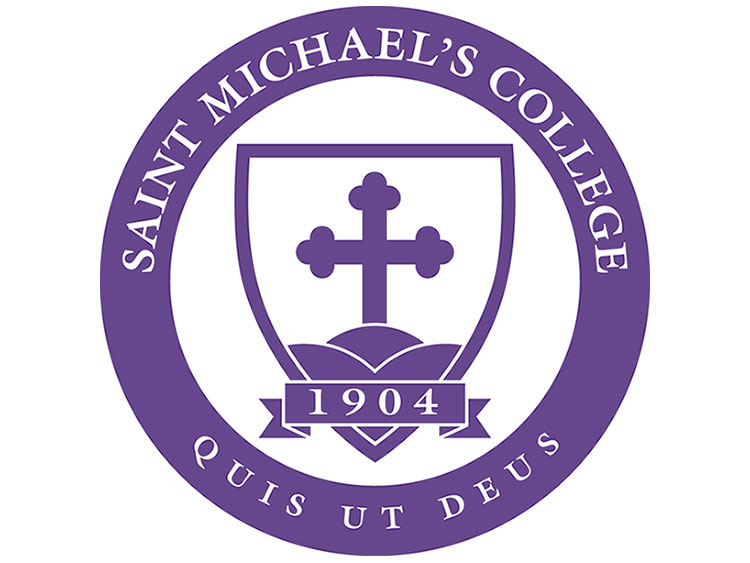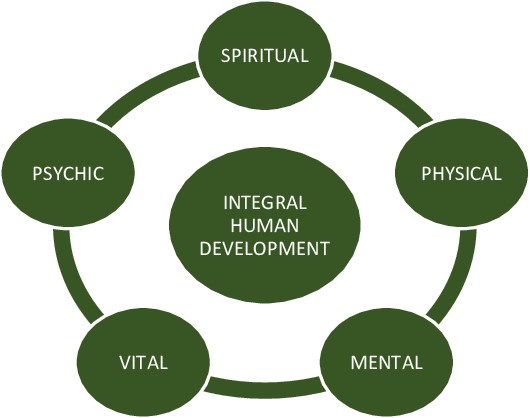A Catholic Social Teaching for a Diverse and Inclusive Community
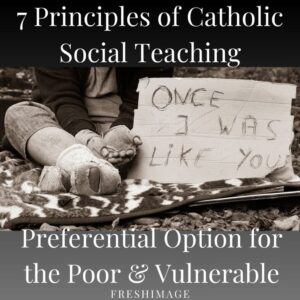 One of the core principles of Catholic social teaching is the option for the poor and vulnerable. From the earliest pages of Scripture, we hear God’s insistence that the needs of those who are marginalized must come first. In the Book of Exodus, God warns that if we ignore the cries of the poor, He will hear them and respond with justice (Exodus 22:20–26). This concern echoes throughout the Bible, as seen in the First Letter of John: “How does God’s love abide in anyone who has the world’s goods and sees a brother or sister in need and yet refuses help?” (1 John 3:17–18).
One of the core principles of Catholic social teaching is the option for the poor and vulnerable. From the earliest pages of Scripture, we hear God’s insistence that the needs of those who are marginalized must come first. In the Book of Exodus, God warns that if we ignore the cries of the poor, He will hear them and respond with justice (Exodus 22:20–26). This concern echoes throughout the Bible, as seen in the First Letter of John: “How does God’s love abide in anyone who has the world’s goods and sees a brother or sister in need and yet refuses help?” (1 John 3:17–18).
The U.S. Catholic Bishops call the Church’s concern for the poor “the moral test of our society.” In an age marked by deepening inequality, they urge us to remember the parable of the Last Judgment (Matthew 25:31–46), where Christ identifies himself with the hungry, the stranger, the sick, and the imprisoned. In Catholic teaching, we are called not simply to charity but to a reordering of our priorities, placing the needs of the poor and vulnerable at the very center of our personal and institutional commitments.
At our Catholic college, students are taught not to isolate single verses of Scripture to support political or personal positions. In Christianity: Past and Present, a foundational course in our curriculum, students explore how biblical texts must be interpreted in light of the whole tradition. For example, some cite Jesus’ words in Matthew 26:11, “The poor you will always have with you,” to suggest that poverty is inevitable and that attempts to address it are futile. But when we read that passage alongside Jesus’ consistent teachings on compassion, justice, and mercy, we see the opposite: we are called not to resignation, but to action.
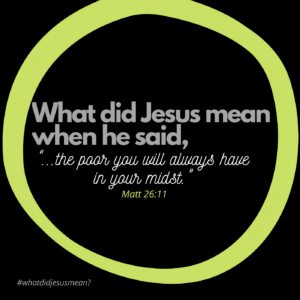 Jesus preached solidarity. He asked his followers not only to give to those in need but to be present with them. His parable in Matthew 25 calls us to provide food and water, clothing and shelter, healing and companionship. These are the tangible works of mercy that define Christian discipleship.
Jesus preached solidarity. He asked his followers not only to give to those in need but to be present with them. His parable in Matthew 25 calls us to provide food and water, clothing and shelter, healing and companionship. These are the tangible works of mercy that define Christian discipleship.
The Second Vatican Council put it eloquently in the opening lines of Gaudium et Spes,
“The joys and the hopes, the griefs and the anxieties of the people of this age, especially those who are poor or in any way afflicted, these are the joys and hopes, the griefs and anxieties of the followers of Christ” (1).
Over the years, this has come to be known as the preferential option for the poor, a moral imperative to begin every conversation about justice from the perspective of those on the margins. It is not about excluding others. It is about centering those who are most often left out. This is where the Gospel places its focus. And this is where the Church must be.
In today’s academic and cultural context, the Church’s call to prioritize the poor resonates deeply with the values of diversity, equity, and inclusion (DEI). These principles are not in conflict with Catholic identity. They flow from it. Diversity affirms the God-given dignity of each person in their uniqueness. Equity seeks to dismantle unjust structures that prevent full participation. Inclusion ensures that all, especially those historically excluded, have a seat at the table.
Catholic social teaching has always affirmed the dignity of every human being, regardless of race, gender, ethnicity, ability, or background. Our DEI commitments on campus are one expression of that teaching. By striving to make our classrooms, offices, and communities more inclusive and equitable, we live out our mission as a Catholic college.
Why, then, focus our energy on the poor and vulnerable? Why center them in our thinking and practice if we want to build a better world? Some may suggest that we simply invite the poor to join the world as it already exists. But Catholic social teaching reminds us that the structures designed by and for the powerful often fail to account for the lived experience of the powerless.
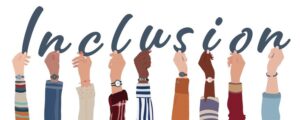 The philosopher John Rawls once suggested in A Theory of Justice that a just society could only be designed by people who did not know in advance what place they would hold in that society. Catholic tradition similarly insists that justice begins not from the top down but from the bottom up. Only by seeing the world through the eyes of the poor can we begin to reshape it into something more just, more compassionate, more human.
The philosopher John Rawls once suggested in A Theory of Justice that a just society could only be designed by people who did not know in advance what place they would hold in that society. Catholic tradition similarly insists that justice begins not from the top down but from the bottom up. Only by seeing the world through the eyes of the poor can we begin to reshape it into something more just, more compassionate, more human.
This is also the core insight of liberation theology: the belief that God is especially present among the poor, and that both the oppressed and the privileged must be transformed in order to build the Beloved Community—a world reconciled, healed, and made whole.
On our Catholic campus, we see this principle lived out in many ways: through service learning and campus ministry, through inclusive pedagogy and student advocacy, through scholarship support and community partnerships. The option for the poor is not merely a principle to be studied—it is a way of life to be embraced. It calls us to see Christ in those who suffer, and to work together—across lines of difference—to build a world where every person can flourish.
If you would like to make a comment or ask a question, I can be contacted at dtheroux@smcvt.edu. Let’s talk!

For all press inquiries contact Elizabeth Murray, Associate Director of Communications at Saint Michael's College.
